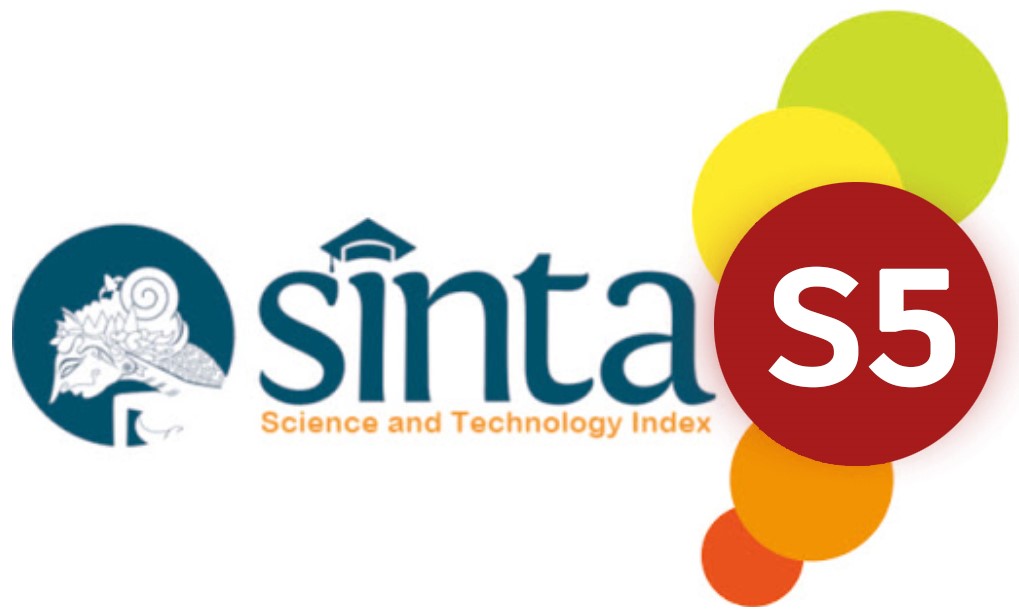PERAN KNOWLEDGE SHARING TERHADAP INOVASI UMKM DI YOGYAKARTA PADA ERA PANDEMI
Abstract
Keywords
Full Text:
PDFReferences
Baregheh, A., Rowley, J., & Sambrook, S. (2009). Towards a multidisciplinary definition of innovation. Management decision.
Birkinshaw, J., Hamel, G., & Mol, M. J. (2008). Management innovation. Academy of management Review, 33(4), 825-845.
Bontis, N., Bart, C., Sáenz, J., Aramburu, N., & Rivera, O. (2009). Knowledge sharing and innovation performance. Journal of intellectual capital.
Camelo-Ordaz, C., Garcia-Cruz, J., Sousa-Ginel, E., & Valle-Cabrera, R. (2011). The influence of human resource management on knowledge sharing and innovation in Spain: the mediating role of affective commitment. The international journal of human resource management, 22(07), 1442-1463.
Castaneda, D. I., & Cuellar, S. (2020). Knowledge sharing and innovation: A systematic review. Knowledge and Process Management, 27(3), 159-173.
Damanpour, F., Szabat, K. A., & Evan, W. M. (1989). The relationship between types of innovation and organizational performance. Journal of Management studies, 26(6), 587-602.
Davila, T., Epstein, M. J., & Shelton, R. D. (Eds.). (2006). The creative enterprise: Managing innovative organizations and people. Greenwood Publishing Group.
Gopalakrishnan, S. (2000). Unraveling the links between dimensions of innovation and organizational performance. The Journal of High Technology Management Research, 11(1), 137-153.
Gurteen, D. (1999). Creating a knowledge sharing culture. Knowledge Management Magazine, 2(5), 1-4.
Hair, J. F., Black, W. C., Babin, B. J., & Anderson, R. E. (2010). Multivariate Data Analysis: A Global Perspective. Edinburg: Pearson Education.
Ipe, M. (2003). Knowledge sharing in organizations: A conceptual framework. Human resource development review, 2(4), 337-359.
Kamaşak, R., & Bulutlar, F. (2010). The influence of knowledge sharing on innovation. European Business Review.
Kimberly, J.R. (1981), “Managerial innovation”, in Nystrom, P.C. and Starbuck, W.H. (Eds), Hand Book of Organization Design, Oxford University Press, Oxford.
Kline, S. J., & Rosenberg, N. (2010). An overview of innovation. In Studies On Science And The Innovation Process: Selected Works of Nathan Rosenberg (pp. 173-203).
Koskab, A. (2013). Knowledge sharing process, innovation capability and innovation performance: An empirical study. Procedia-Social and Behavioral Sciences, 75, 217-225.
Lester, M. (2011). A study of the innovation, creativity, and leadership skills associated with the college-level millennial generation.
Li, Y., Song, Y., Wang, J., & Li, C. (2019). Intellectual capital, knowledge sharing, and innovation performance: Evidence from the Chinese construction industry. Sustainability, 11(9), 2713.
Qianqian, L., Yuanjian, Q., & Xin, Z. (2011). Relationship Between Psychological Knowledge Ownership and Knowledge Sharing: Adjustment for Organizational Fairness.
Ramayah, T., Yeap, J. A., & Ignatius, J. (2014). Assessing knowledge sharing among academics: A validation of the knowledge sharing behavior scale (KSBS). Evaluation review, 38(2), 160-187.
Ritala, P., Olander, H., Michailova, S., & Husted, K. (2015). Knowledge sharing, knowledge leaking and relative innovation performance: An empirical study. Technovation, 35, 22-31.
Rogers, M., & Rogers, M. (1998). The definition and measurement of innovation.
Rumanti, A. A., Samadhi, T. A., Wiratmadja, I. I., & Sunaryo, I. (2018, April). A systematic literature review on knowledge sharing for innovation: Empirical study approach. In 2018 5th International Conference on Industrial Engineering and Applications (ICIEA) (pp. 504-509). IEEE.
Ryu, S., Ho, S. H., and Han, I. (2003). Knowledge sharing behavior of physicians in hospitals. Expert Systems with Applications, 25(1), 113 122.
Sekaran, U., & Bougie, R. (2013). Research methods for business.Research methods for business. New York: Wiley.
Suryana, Yuyus, Kartib Bayu. 2010. Kewirausahaan. Jakarta: Penerbit Kencana.
Walker, R. M., Damanpour, F., & Devece, C. A. (2011). Management innovation and organizational performance: The mediating effect of performance management. Journal of Public Administration Research and Theory, 21(2), 367-386.
Yeşil, S., & Dereli, S. F. (2013). An empirical investigation of the organisational justice, knowledge sharing and innovation capability. Procedia-Social and Behavioral Sciences, 75, 199-208.
Yunus, Muhamad. 2010. Inovasi dan Kreativitas dalam Pemasaran. Malang: UIN- MALIKI PRESS (Anggota IKAPI).
DOI: http://dx.doi.org/10.24042/revenue.v2i1.7996
Refbacks
- There are currently no refbacks.
Manajemen Bisnis Syariah UIN Raden Intan Lampung








